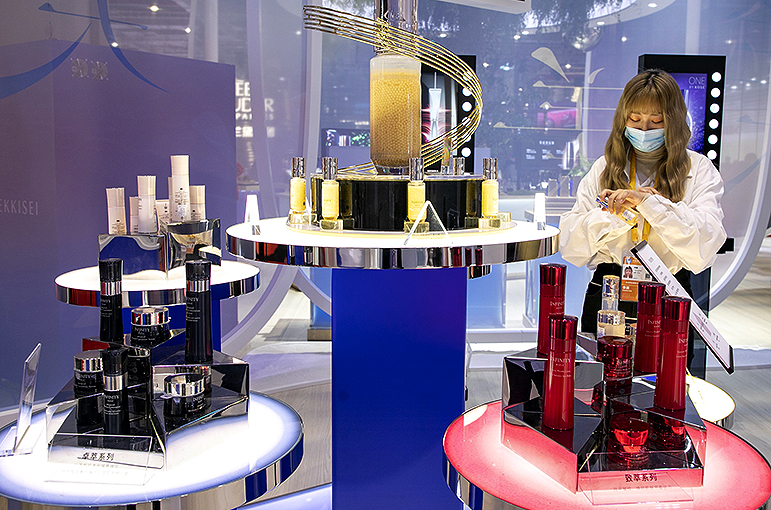 Muji, Kao, Other Japanese Cosmetic Brands Deny Nuclear Water's Impact on Products
Muji, Kao, Other Japanese Cosmetic Brands Deny Nuclear Water's Impact on Products(Yicai) Aug. 25 -- Japanese cosmetic and skincare brands, including Muji, Kao, and SK-II, said their products are unaffected by Japan's release of radioactive wastewater from the Fukushima nuclear power plant as concerns grow among Chinese consumers.
A customer service representative at Muji, a homeware retailer, said its products were made earlier and are not impacted by the wastewater release. Most of Muji's items are also not produced in Japan, the person noted.
The products of SK-II, a well-known cosmetics brand owned by Procter & Gamble, come from Japan's western Shiga prefecture, far from Fukushima prefecture, its CS department pointed out. They are made using fresh water and are not affected by the discharge from the atomic power plant, it added.
Japan has started to release treated wastewater from the Fukushima power station into the Pacific Ocean, 12 years after it was wrecked by an earthquake and tsunami, triggering fears about the safety of consumer products and foodstuffs from the country.
Since the disaster in 2011, every issue with wastewater has triggered a wave of Japanese product returns, according to China’s Founder Securities.
China was the second-largest importer of Japanese cosmetics last year. But imports sank 30 percent last month from a year earlier, after dropping 8.4 percent in June, data from China's customs authority showed.
About CNY27.1 billion (USD3.7 billion) of Japanese cosmetics were sold in China in 2022, and the release of radioactive water may shave around CNY4 billion to CNY5.3 billion (USD548.9 million to USD727.2 million) off that now, according to Euromonitor International. If the market share of Japanese brands shrinks by 20 percent because of this, Chinese rivals can take advantage, the market researcher added.
Curel and Freeplus, the skincare brands under Japanese household products maker Kao, said that all products imported from Japan to China through official channels have been tested for radioactive materials and are also examined by China's customs agency.
Shu Uemura Cosmetics' customer service department also noted that the wastewater discharge will not affect its beauty and skincare products, adding that its production meets environmental standards.
Some of the products of South Korean cosmetics brand Innisfree are imported from there to China, while others are made in China, with all the raw materials and machinery coming from Korea, a customer service staffer for the Seoul-based firm pointed out.
Editor: Martin Kadiev